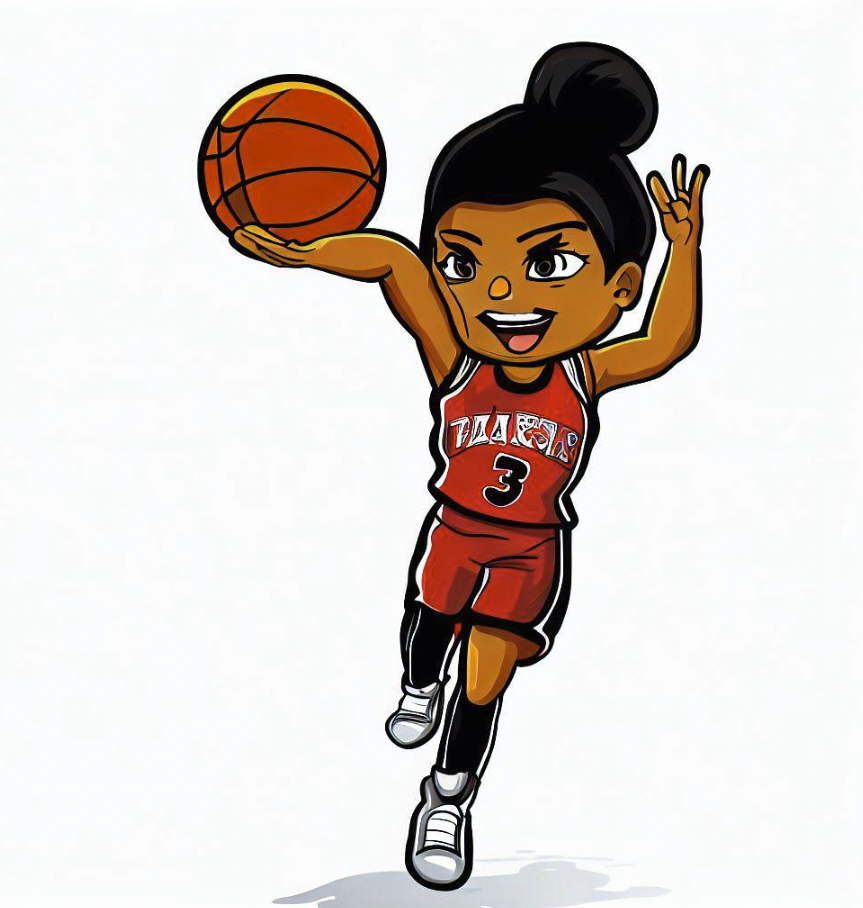Coaching youth basketball can be a rewarding experience that not only helps young athletes develop their skills but also teaches them important life lessons such as teamwork, discipline, and perseverance.
However, coaching youth basketball requires more than just knowledge of the game; it requires effective communication, patience, and the ability to create a positive and supportive environment for the players.
Below we look at the key strategies and techniques that can help you become a successful youth basketball coach.
Understanding the Developmental Stage
Before diving into coaching techniques, it is crucial to understand the developmental stage of the young athletes you will be coaching.
Youth basketball players go through various stages of physical, cognitive, and emotional development, and tailoring your coaching approach to their specific needs is essential for their growth and enjoyment of the sport.
Physical Development
Children between the ages of 6 and 12 experience significant physical changes as they grow.
Their coordination, balance, and motor skills are still developing, so it is important to focus on fundamental movements and basic basketball skills during this stage.
Emphasize proper technique and form to help them build a strong foundation.
Cognitive Development
As children grow older, their cognitive abilities also improve.
They become more capable of understanding complex instructions, strategies, and game concepts.
However, it is important to remember that their attention spans may still be relatively short, so breaking down information into smaller, digestible parts is crucial for effective learning.
Emotional Development
Emotional development plays a significant role in youth basketball.
Children may experience a range of emotions during games and practices, including frustration, excitement, and disappointment.
As a coach, it is important to create a supportive and positive environment that encourages players to express their emotions while also teaching them how to handle adversity and work together as a team.
Building a Strong Foundation
When coaching youth basketball, it is essential to focus on building a strong foundation of fundamental skills.
These skills form the basis for more advanced techniques and strategies.
Here are some key areas to focus on:
1. Dribbling
Dribbling is one of the most fundamental skills in basketball.
Teach players how to dribble with both hands, emphasizing proper hand placement, control, and change of direction.
Encourage them to practice dribbling drills that improve their ball-handling skills.
2. Shooting
Shooting is another crucial skill that requires practice and repetition.
Teach players the correct shooting form, including proper footwork, hand placement, and follow-through.
Provide opportunities for players to practice shooting from different positions on the court.
3. Passing
Passing is an essential skill for teamwork and ball movement.
Teach players different types of passes, such as chest passes, bounce passes, and overhead passes.
Emphasize accuracy, timing, and decision-making when passing the ball.
4. Defense
Teach players the fundamentals of defense, including proper stance, footwork, and positioning.
Emphasize the importance of communication and teamwork in defensive strategies.
Provide opportunities for players to practice one-on-one and team defense drills.
5. Rebounding
Rebounding is a critical aspect of the game that often goes overlooked.
Teach players the importance of boxing out and positioning themselves to secure rebounds.
Incorporate rebounding drills into your practices to help players develop this skill.
Effective Coaching Techniques
Coaching youth basketball requires more than just teaching skills; it involves creating a positive and supportive environment that fosters growth and development.
Here are some effective coaching techniques to consider:
1. Positive Reinforcement
Positive reinforcement is a powerful tool in coaching.
Recognize and praise players for their efforts, improvements, and achievements.
Encourage a growth mindset by focusing on the process rather than just the outcome.
This helps build confidence and motivation in young athletes.
2. Clear Communication
Effective communication is essential for successful coaching.
Clearly explain instructions, strategies, and expectations to players.
Use simple and concise language, and provide visual demonstrations when necessary.
Encourage players to ask questions and seek clarification.
3. Individual Attention
Every player is unique and may require individual attention to address their specific needs and areas for improvement.
Take the time to observe each player’s strengths and weaknesses and provide personalized feedback and guidance.
This helps players feel valued and supported.
4. Fun and Engaging Practices
Make practices enjoyable and engaging for young athletes.
Incorporate drills, games, and activities that challenge their skills while also keeping them entertained.
Use a variety of teaching methods, such as small-sided games and competitions, to keep the players motivated and excited about the sport.
5. Setting Realistic Goals
Set realistic goals for individual players and the team as a whole.
Break down larger goals into smaller, achievable milestones.
Celebrate the progress and achievements along the way to keep players motivated and focused on continuous improvement.
Basics of Coaching Youth Basketball | How To Coach Youth Basketball
FAQs – How to Coach Youth Basketball
1. How do I motivate my players?
Motivating players can be achieved through positive reinforcement, setting achievable goals, and creating a supportive team environment.
Recognize and praise their efforts, provide constructive feedback, and encourage them to challenge themselves.
2. How can I improve my players’ basketball skills?
Improving players’ basketball skills requires a combination of focused practice, individual attention, and providing opportunities for game-like situations.
Break down skills into smaller components, provide specific feedback, and incorporate drills and game scenarios that allow players to apply their skills.
3. How do I handle conflicts or discipline issues within the team?
Conflicts and discipline issues may arise within a team.
It is important to address these issues promptly and fairly.
Encourage open communication, listen to all parties involved, and work towards finding a resolution that promotes teamwork and respect.
4. How can I help players develop good sportsmanship?
Teaching good sportsmanship is an essential part of coaching youth basketball.
Lead by example and emphasize the importance of respect, fair play, and teamwork.
Encourage players to congratulate opponents, shake hands after games, and show appreciation for their teammates’ efforts.
5. How do I manage playing time for all players?
Managing playing time can be challenging, especially when you have a large roster.
It is important to provide opportunities for all players to participate in games and gain experience.
Consider rotating players during different quarters or halves and provide feedback and guidance to those who may need additional development.
6. How can I help players overcome fear or anxiety during games?
Fear or anxiety during games is common among young athletes.
Create a supportive environment where players feel comfortable expressing their emotions.
Encourage them to focus on the process rather than the outcome, and provide strategies such as deep breathing or visualization techniques to help them manage their anxiety.
7. How do I handle parents’ expectations and involvement?
Parents’ expectations and involvement can vary greatly.
Establish clear communication with parents from the beginning, outlining your coaching philosophy, goals, and expectations.
Encourage open dialogue and address any concerns or questions they may have.
Keep them informed about their child’s progress and provide opportunities for parent-player-coach meetings.
8. How can I make practices more engaging for young athletes?
To make practices more engaging, incorporate a variety of drills, games, and activities that challenge players’ skills while also keeping them entertained.
Use small-sided games, competitions, and skill-based challenges to create a fun and competitive atmosphere.
Be creative and adapt your coaching methods to suit the interests and abilities of your players.
9. How do I teach teamwork and collaboration?
Teaching teamwork and collaboration is crucial in youth basketball.
Emphasize the importance of communication, trust, and support among teammates.
Incorporate team-building activities, such as group challenges or problem-solving exercises, to foster collaboration.
Encourage players to celebrate each other’s successes and work together towards common goals.
10. How can I help players develop resilience?
Resilience is an important trait for young athletes to develop.
Encourage players to embrace challenges and view setbacks as opportunities for growth.
Teach them to learn from mistakes, stay positive, and persevere through difficult situations.
Provide support and guidance during challenging times to help them build resilience.
Summary
Coaching youth basketball requires a combination of technical knowledge, effective communication, and the ability to create a positive and supportive environment.
Understanding the developmental stage of young athletes is crucial for tailoring coaching techniques to their specific needs.
Building a strong foundation of fundamental skills and employing effective coaching techniques, such as positive reinforcement and clear communication, can help players develop their basketball skills while also learning important life lessons.
By addressing frequently asked questions and providing valuable insights, this article aims to equip aspiring youth basketball coaches with the necessary tools to succeed in their coaching journey.
Related


